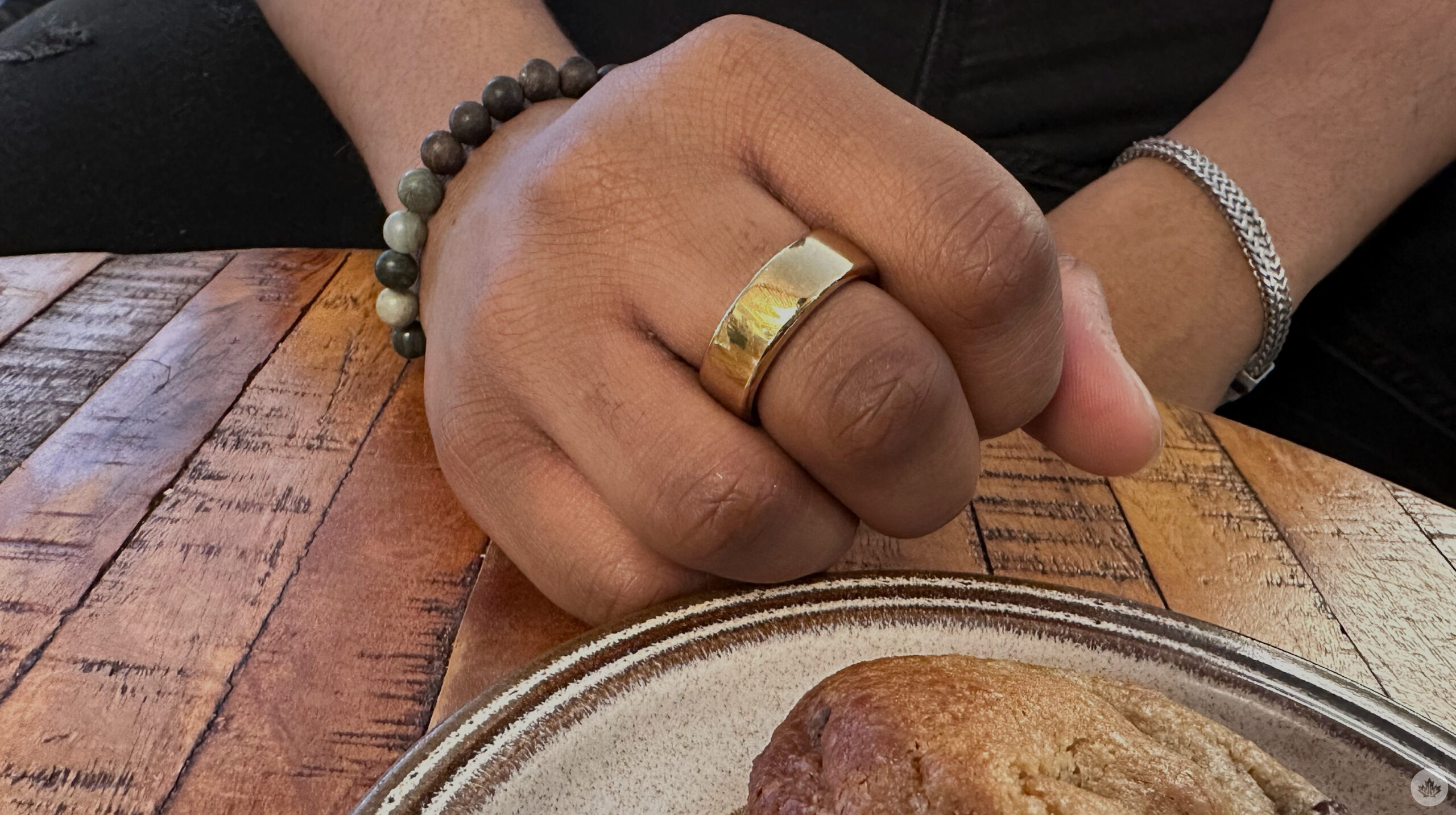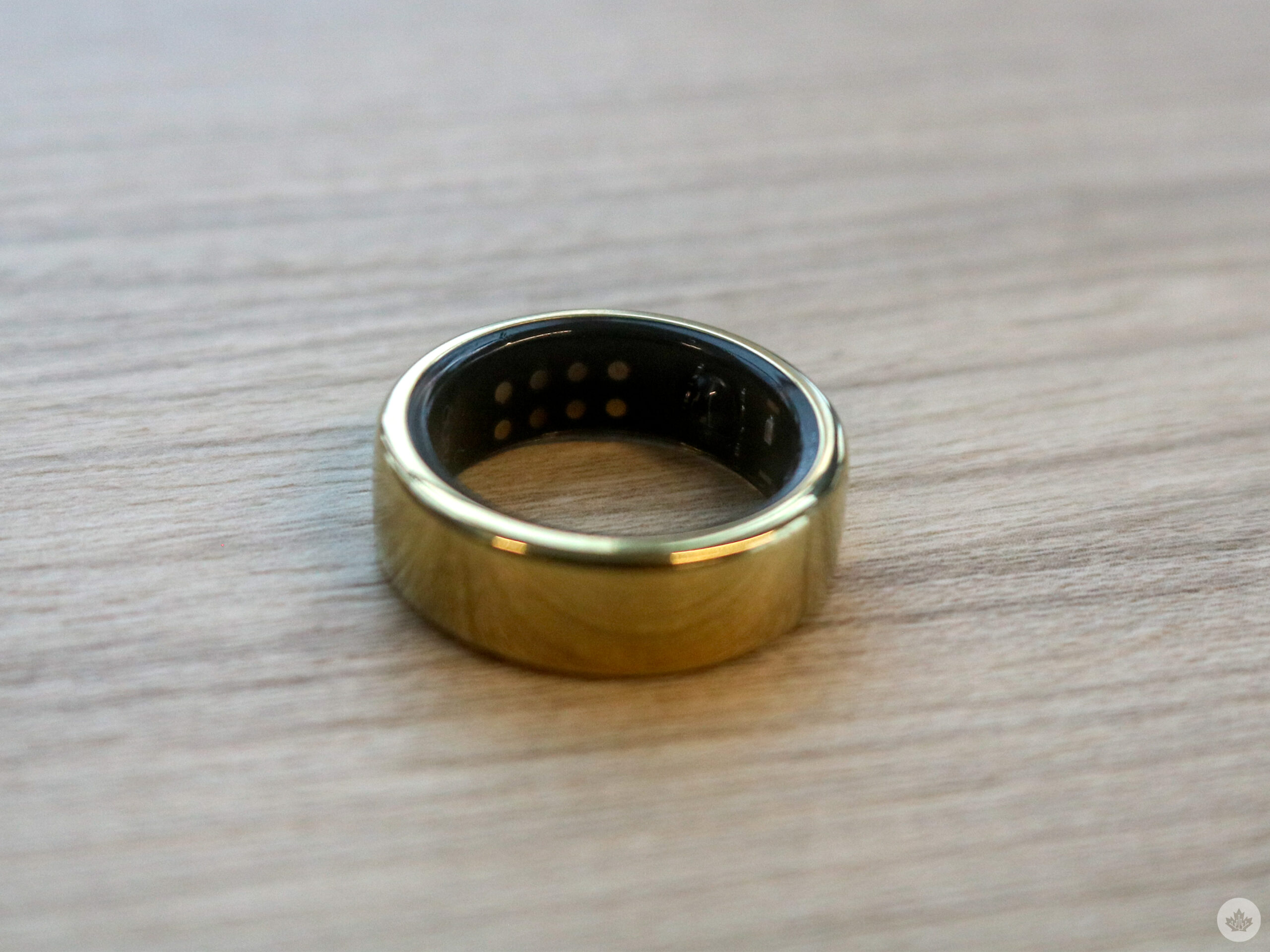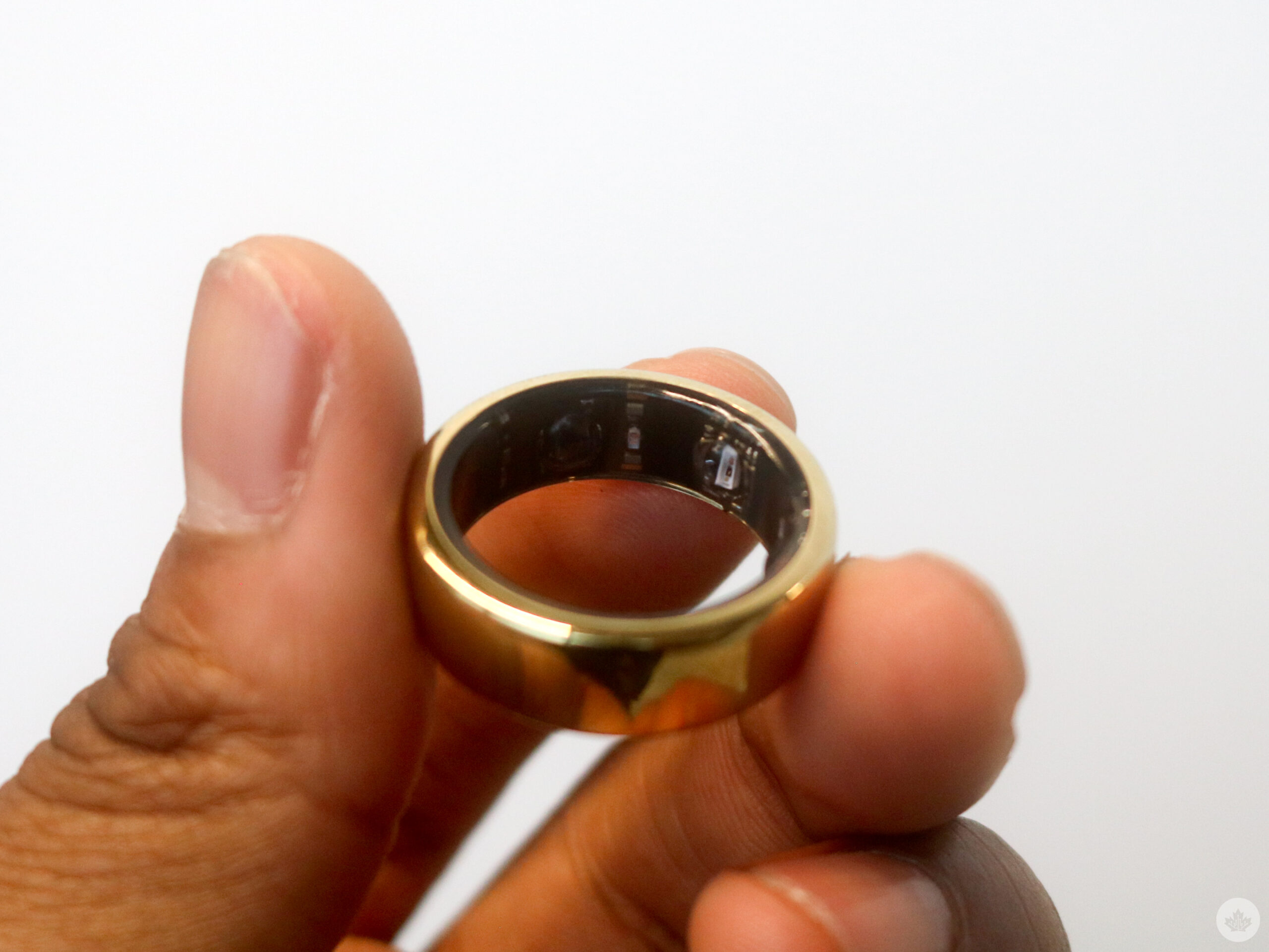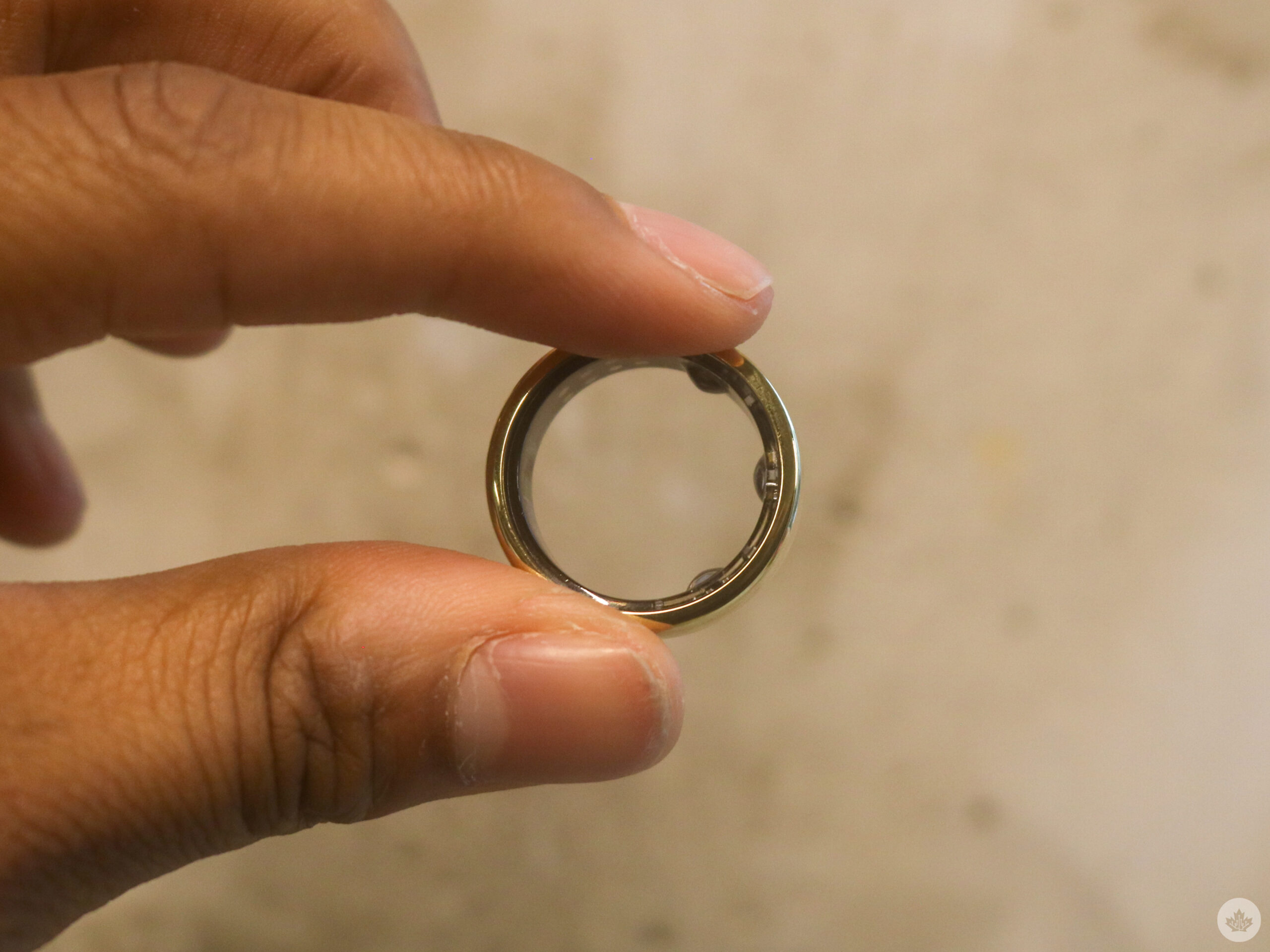
I’ve been using the Oura Ring Gen 3 Horizon for several months, and after extensive usage, including wearing it almost every night while I sleep, I have thoughts I want to share about the wearable and how it improved my sleep, alongside some of its shortcomings. Let’s start from the beginning.
The setup
When you get an Oura ring, the first step is sizing. Oura will send you a sizing kit that comes with 12 different options, and following that, you have to tell them which sample ring fits the best. The company then sends over your Oura. You also get to pick a colour – I chose the beautiful golden variant.
After getting the Oura, you’ll need to download the Oura app from either the Play Store or App Store. Since the Oura ring doesn’t have a screen, the app is where all the information is shown.
 The app showcases data about your sleep, readiness, and your activity and tells you what your body needs throughout the day. The ‘Readiness Score’ provides information about your health using more than 20 biometric signals, including your temperature, heart rate and sleep, to tell you if you’re ready for the day ahead of you. A low score means that you’re stressed and that you need to take it easy. It can also be a sign that you’re sick; however, that’ll also be met with your app going into ‘Rest Mode.’ Rest Mode adjusts your daily goals, as your body is under stress and needs to prioritize rest and recovery.
The app showcases data about your sleep, readiness, and your activity and tells you what your body needs throughout the day. The ‘Readiness Score’ provides information about your health using more than 20 biometric signals, including your temperature, heart rate and sleep, to tell you if you’re ready for the day ahead of you. A low score means that you’re stressed and that you need to take it easy. It can also be a sign that you’re sick; however, that’ll also be met with your app going into ‘Rest Mode.’ Rest Mode adjusts your daily goals, as your body is under stress and needs to prioritize rest and recovery.
The ring also tracks your activity, such as your workout heart rate; it can detect if you started exercising and tells you how many steps you’ve taken and how many calories you’ve burnt. You can also tell how active you are throughout the day and if you moved a lot. I used the Oura Ring during a time when I felt depressed and wasn’t working out a lot, so this is the feature I used the least. However, while I’ve been doing better and started back at the gym, I’ve noticed that smartwatches are better at seeing exactly how activities affect your health, but more on that later.
Why I needed an Oura Ring
 Now, the Oura Ring’s pièce de resistance is its sleep tracking. It tracks your total amount of sleep, how long you spent in bed, your REM sleep, deep sleep, and sleep latency (how quickly it takes you to go to sleep), the efficiency of your sleep, what time you go to sleep, your oxygen saturation, breathing regularity, how often you wake up and move during the night.. Sleep efficiency is measured by the restfulness of your sleep, which tracks your wake-ups, excessive movements and getting up from your bed during sleep.
Now, the Oura Ring’s pièce de resistance is its sleep tracking. It tracks your total amount of sleep, how long you spent in bed, your REM sleep, deep sleep, and sleep latency (how quickly it takes you to go to sleep), the efficiency of your sleep, what time you go to sleep, your oxygen saturation, breathing regularity, how often you wake up and move during the night.. Sleep efficiency is measured by the restfulness of your sleep, which tracks your wake-ups, excessive movements and getting up from your bed during sleep.
It also tracks your heart rate variability, which measures how much your heart rate fluctuates.
Weirdly, my naturopath suggested that I get an Oura ring. During my sessions, we started to notice that I no longer felt rested in the morning after a night of sleep. I know I have sleep apnea, and I’m still waiting for a CPAP machine, but he thought perhaps the Oura ring could provide me with more insight while I wait. And that it did.
I learned a lot about my sleep with the ring. When I started, I’d have decent sleep scores in the 70s range; it would continuously say that I’d need to watch my ‘timing’ and my ‘restfulness.’ Timing is something that I’ve never succeeded at in my several weeks with the Oura Ring. Essentially, the timing score takes into account your sleep, including naps, and the midpoint of your sleep cycle, which should fall between midnight and 3am, according to the app. As someone who typically falls asleep anywhere from 10am to 1am, this score often isn’t great. However, the timing score, while important, isn’t what I’ve been the most concerned about.
The app also tells me to pay attention to my restfulness score, which is likely due to me tossing and turning and waking up multiple times to go to sleep. Thankfully, the app teaches you how to improve this score. It suggests optimizing the environment by making sure the mattress is comfortable, the bedroom quiet, dark, and cool (around
18 degrees Celsius), avoiding spicy meals and alcohol as well, and stopping drinking caffeine in the afternoon and evening. The app also suggests completing workouts 1-2 hours before you go to bed.

While I thought this was concerning, after a trip to Hawaii that completely messed up my sleep cycle, I had low scores in the 50-60 range for almost a week. I started to feel pretty sick with shivers, couldn’t eat, and when I did, it tasted weird, and what was worst of all, I just couldn’t sleep. The app then gave me a warning that I need to be concerned about my sleep, and I took that seriously.
So for several weeks, I really focused on improving my sleep. I avoided alcohol and caffeine, cooled down my room, made sure I went to bed earlier, as suggested by my ring, and took some GABA and Magnesium, which was recommended by my naturopath. After several days, I started receiving better scores, with the occasional low REM sleep scores, which can be explained by my sleep apnea. And even though my timing still loses on occasion, I started receiving optimal sleep scores, with REM Sleeps around the two-hour mark, deep sleep around the three-hour mark and good restfulness. And I felt better, more energized; I could eat again and wasn’t feeling too cold.
Who doesn’t love a good night’s rest?
As someone who has sleep apnea and sometimes insomnia, I found the Oura Ring very useful. While smartwatches can track your sleep, I typically find them too heavy to actually sleep with.
Some of them I can use throughout a week or two of testing, but I occasionally find the weight of a watch keeps me up as well. Having the very light ring-sized tracker was optimal to track my sleep. I’ve reviewed Samsung Galaxy Watches in the past, and while I think they’re at tracking your activities and workouts, the Oura Ring is definitely better for sleep tracking and great for me. This isn’t the solution for everyone, but if you’re tired every morning after a night’s rest and want to know what’s going on with your sleep, like myself, I’d suggest buying an Oura Ring.
Also, as someone who likes jewelry and fashion, adding a sleek gold ring to the collection doesn’t hurt.
The Oura Ring Gen 3 Horizon costs $349 USD (about $464.84 CAD), but the gold variant is $499 USD ( roughly $684.63 CAD).
MobileSyrup may earn a commission from purchases made via our links, which helps fund the journalism we provide free on our website. These links do not influence our editorial content. Support us here.


